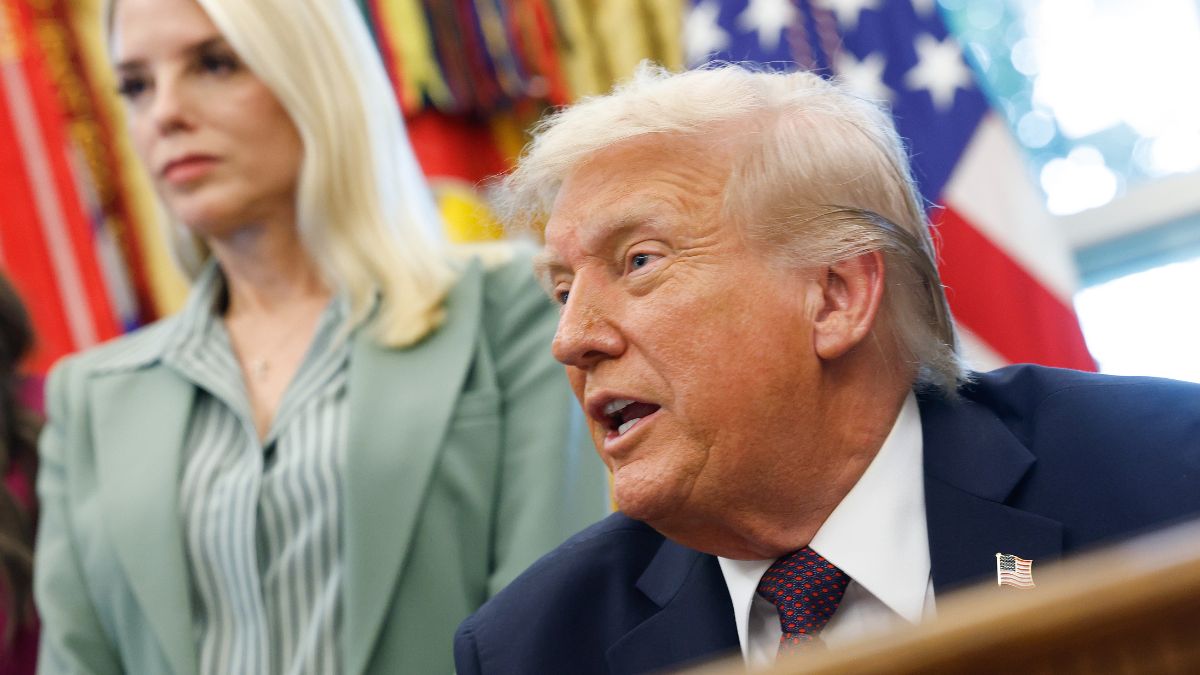
It looks like Trump’s Attorney General Pam Bondi is stirring up a lot of controversy with her recent comments about free speech and what she calls “hate speech.” On a podcast with Katie Miller, the wife of former Trump aide Stephen Miller, Bondi declared, “There’s free speech and then there’s hate speech.” This isn’t just a simple statement; it’s a huge shift from the legal consensus and it’s causing a lot of concern.
To be fair, the idea that not all speech is protected by the First Amendment isn’t new. We all know that things like yelling “fire” in a crowded theater or inciting violence aren’t protected. But Bondi’s comments are being seen as a dangerous and legally shaky claim that the Trump administration plans to “absolutely target” people who use what the administration deems to be hate speech.
In a post-podcast exchange found by MSNBC, Bondi attempted to clarify her remarks by saying, “Hate speech that crosses the line into threats of violence is NOT protected by the First Amendment. It’s a crime. For far too long, we’ve watched the radical left normalize threats, call for assassinations, and cheer on political violence. That era is over.” Since her words targeted democrats, the not-so-rare times conservatives do the same thing have been left out, which is telling.
Trump’s AG wants to decide what hate speech is, and who it is against
Bondi’s initial statement was a little broader. The proudest boast of our free speech jurisprudence is that we protect the freedom to express “the thought that we hate.” That’s a direct quote from Justice Samuel Alito, a conservative judge, no less, in a 2017 opinion. This is a crucial point, because it shows that even people who are not wilting liberals understand that the law does not make a distinction between “free speech” and “hate speech.”
Bondi’s comments came on the heels of the tragic fatal shooting of Trump ally Charlie Kirk. Kirk, a vocal proponent of free speech, was shot while speaking at an event, and his death has become a flashpoint for the ongoing debate over political discourse and violence. The administration and its supporters have responded by cracking down hard on those they believe are targeting opponents with “hateful” or even just critical comments.
Bondi seemingly doing some clean-up here after she said on a podcast that the government would "absolutely target you, go after you, if you are targeting anyone with hate speech." https://t.co/3tmLVHGRDi
— bryan metzger (@metzgov) September 16, 2025
For instance, The Washington Post fired one of its opinion columnists for posts that lamented how “white America” was not ready to solve gun violence and that quoted Kirk himself. This is the kind of crackdown that has people worried about a chilling effect on speech. This is unsurprising, since Trump wants to bring in laws against anti-Americanism, which is just another form of stifling free speech.
On the one hand, it’s comforting to think that any prosecutions attempted by the administration for what is protected speech would ultimately fail. But that comfort only extends so far when the administration’s words and actions suggest they will go after people and groups they see as their opponents, regardless of the legal outcome. Nobody wants to be targeted, even if they’re ultimately successful in a frivolous legal battle.
It’s an interesting situation, especially when you consider the Trump administration’s previous actions. In the first Trump administration, for example, the Justice Department’s Civil Rights Division investigated 60 percent fewer cases than the Obama administration, which gives us an idea of how much of a priority this kind of thing might be.







